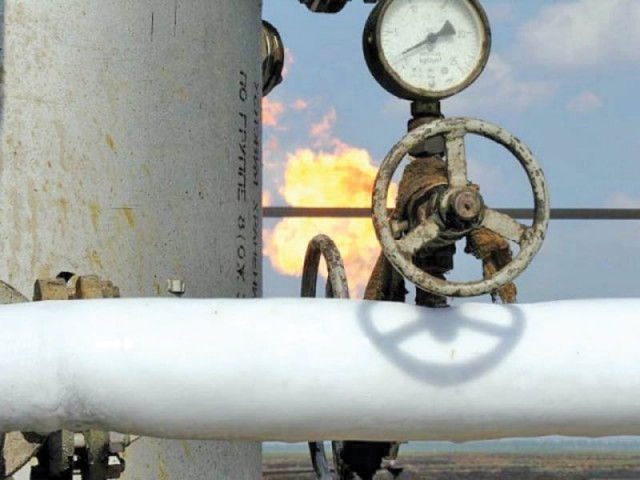Govt should do away with GIDC on consumers
Has no moral and legal justification as court has struck the cess down

Govt should do away with GIDC on consumers
In 2011, the PPP government imposed a tax in the name of Gas Infrastructure Development Cess (GIDC) on all industrial gas users and CNG sector except the households.
The act was very damaging for the country’s economic growth as its rate was very high especially for fertiliser, CNG and power sectors. As a result, it was challenged in all high courts and was struck down by every court. It was declared ultra vires of the constitution, void, illegal and infringement into the fundamental rights and an interim relief was granted.

The government’s appeal to the Supreme Court was dismissed on August 22, 2014 and judgments of the high courts were upheld by a full bench. The government’s review petition was also dismissed by the Supreme Court in September this year.
Surprisingly, in order to defeat the judgments of the Supreme Court and high courts, the President of Pakistan, on the advice of the prime minister, promulgated the GIDC Ordinance 2014 on September 25, 2014 with retrospective effect against the interest of the industrial sector in order to please the International Monetary Fund (IMF).
The petroleum secretary said at a press conference Pakistan had committed to the IMF that it would collect Rs145 billion from GIDC this fiscal year. This means that the cess is being collected to repay a national debt but at the expense of one sector only which is using gas.
Section 4 of the Presidential Ordinance defines three purposes for the utilisation of the cess, which are;
(i) Infrastructure development for Iran-Pakistan (IP) pipeline project.
(ii) Turkmenistan, Afghanistan, Pakistan, India (TAPI) pipeline project.
(iii) LNG or other projects or for price equalisation of other imported alternative fuels including LPG or for such other purposes connected therewith as determined by the federal government.
Misleading
In fact, the utilisation purposes are misleading due to following reasons;
1. The IP pipeline project due to US sanctions on Iran could not be implemented and according to The Express Tribune of July 11, 2014 this project has been all but shelved following a $1.5 billion gift to Pakistan from a friendly nation.
On October 18, 2014, The Daily Times reported that Iran had unilaterally ended government-to-government cooperation agreement with Pakistan, and after this the much talked about gas pipeline project has become unfeasible.
2. Also in its July 11 issue, The Express Tribune reported that the US favours TAPI gas pipeline, but at this stage, however, this project only looks like a dream and is far from reality because of unrest in Afghanistan.

It is also reported that the ADB is pushing the TAPI project since long but so far except the signing of MoUs no further progress is visible. Neither the appointment of consultants for this large project of 1,800 km has been finalised nor any feasibility report prepared.
Some energy experts are of the opinion that even after the conditions in Afghanistan are settled, the project may take another five to six years for completion.
Hence, these pipeline projects have no chance to succeed and would take an indefinite period for completion. On the basis of these projects, the levy of GIDC has no legal and moral justification.
LNG import
Now, the only purpose left for utilisation, as mentioned in the ordinance of 2014, is the import of LNG and price equalisation. So far, no price has been finalised, but indications given by some sources point to $17-18 per mmbtu and with inclusion of all other charges including regasification cost it may come to $20-21 per mmbtu and that may become expensive than petrol.
The LNG purchase has already become controversial. The News International, in its issue of February 23, 2014, especially referred to India where LNG import from Qatar cost an average $10-12 per mmbtu. The distance between Pakistan’s port and Qatar is short when compared with India.
Likewise, it is strange to collect cess for equalisation of a high purchase cost whereas in other countries, especially India, a subsidy is provided by the government for LNG use. In fact, it is an unauthorised advance tax.
The petroleum minister, in his press conference of September 24, 2014, declared that the government had already collected Rs100 billion in GIDC since 2011 and according to his secretary another Rs145 billion was being collected at the behest of the IMF, irrespective of the fate of the industry.
Where will cess go
Despite the stated purposes, in fact, the cess will only be used for LNG imports and IMF loan repayments as both the proposed pipelines are in jeopardy and cannot start in the foreseeable future. The government has no moral, legal and ethical justification to impose the cess through an ordinance while the apex court has already struck it down. In all fairness, the ordinance of 2014 must be withdrawn.
The writer is a director at one of the leading four banks in Pakistan and also a consultant to the ADB
Published in The Express Tribune, December 8th, 2014.
Like Business on Facebook, follow @TribuneBiz on Twitter to stay informed and join in the conversation.


















COMMENTS
Comments are moderated and generally will be posted if they are on-topic and not abusive.
For more information, please see our Comments FAQ